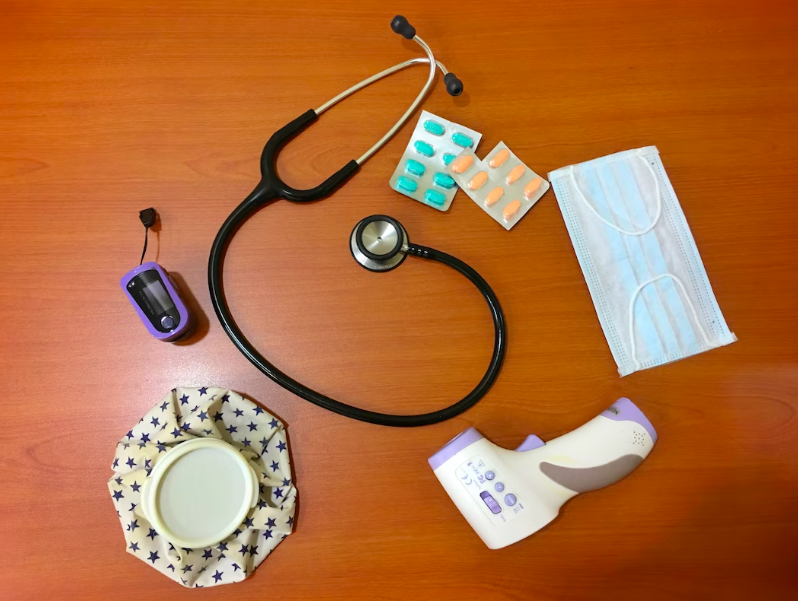We all have experienced the symptoms of infection before, but few of us understand what our bodies are doing when we become ill. Have you ever wondered how long it takes for the body to produce antibodies after an infection? The purpose of this article is to discuss how antibodies function in our bodies and the timeframe for their production following an infection.
The human body is an extremely complex system, with each part working in harmony to keep us healthy. When we are infected with a virus or bacterium, our immune system responds to protect us. As part of this response, antibodies are produced to neutralize and eradicate the pathogens that invade our bodies.
Since many factors influence how quickly and effectively your immune system responds after an infection, it can be difficult to know exactly how long it takes for your body to produce these antibodies. The purpose of this article is to explain how antibodies are produced after you are infected and what happens within your body during an infection.
Antibodies: What Are They?
The body’s immune system relies heavily on antibodies to fight off infection and disease. Now that we know what antibodies are, let’s review the different types of antibodies it produces.
The two main types of antibodies are known as IgM and IgG. IgM antibodies are produced first and serve to provide strong initial defence against an infection or foreign invader. This response is often seen within the first week after infection. In contrast, IgG antibodies take longer to form, but they last longer in the body. These long-lasting immunities help us avoid reinfections or further exposures to intruders we’ve already encountered.
In addition to the two primary varieties, there are isotypes which can be divided into classes like IgA, IgD, and IgE. Each of these antibodies serves a unique purpose in safeguarding against certain pathogens. For instance, some isotypes might specialize in a certain virus while others may be aimed at bacteria or parasites. Being aware of which type of antibody you have can aid with determining how quickly immunity will form when infected.
We can gain insight into how long it takes our bodies to mount an effective defence against infections and diseases by understanding how these antibodies differ and what role they play in the development of immunity.
Antibody testing
To understand how long it takes for your body to produce antibodies after an infection, testing for antibodies is important. We can gain a better understanding of what’s happening inside our bodies by testing for antibodies, which are proteins that help us fight off foreign invaders like viruses and bacteria.
Different types of tests can be used to measure antibody levels in the body. ELISA is a common technique that assesses the amount of antibodies in a sample. Western blotting applies proteins to detect specified antibodies, while PCR amplifies DNA or RNA so that particular antibodies can be discerned.
It’s important to note that not all tests provide accurate results; so you should work with healthcare professionals who are experienced in performing these kinds of tests and interpreting the results. You can ensure that you are taking steps towards optimal health and wellbeing if you get an accurate diagnosis. With the right knowledge and resources, you can make informed decisions about how to proceed with treatment and recovery.
Antibody Formation Symptoms
When it comes to understanding how long it takes for antibodies to develop after an infection, the symptoms of antibody formation are an important consideration. When our bodies detect foreign substances, they produce antibodies to fight infections. You can better understand how long it may take for antibodies to form by knowing the signs that your body is producing them.
Temperature rises are quite frequently the first indication that antibodies are beginning to form. A fever is often a tell-tale sign that your body is struggling to fight off an infection. Other symptoms such as energy loss, joint soreness, headaches, or just feeling generally unwell, may continue until the infection has been made harmless or until your body gets used to the presence of a foreign material.
Changes in appetite or digestion may also indicate that your body is producing antibodies. When your immune system is fighting off an infection, it requires extra energy, so you may feel hungrier or suffer from indigestion or nausea more often than usual. You may also experience swollen lymph nodes as white blood cells attack invading pathogens to produce antibodies against them, resulting in swollen lymph nodes.
No matter what symptoms you experience after an infection, remember that everyone responds differently and at different speeds. It is best to consult with your doctor to determine whether antibodies have formed. If left untreated, some infections can lead to serious health complications down the line, so always check in with your healthcare provider if you suspect any kind of illness or infection.
In summary, it is critical to comprehend the span of time necessary for the body to create antibodies after an infection. There are numerous ways to support your immune system and lower the risk of getting infected, which can decrease the time required for antibody production. Vaccinating yourself against infections is also highly advantageous since it eliminates the need for antibody production altogether. Additionally, being alert for signs of contamination and taking prompt measures to treat them could aid in reducing the amount of time needed for antibody production. Bearing these steps in mind can ensure that your body will be capable of producing antibodies efficiently and effectively when necessary.




















